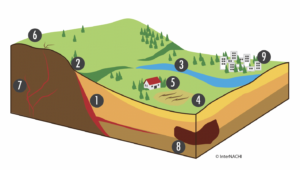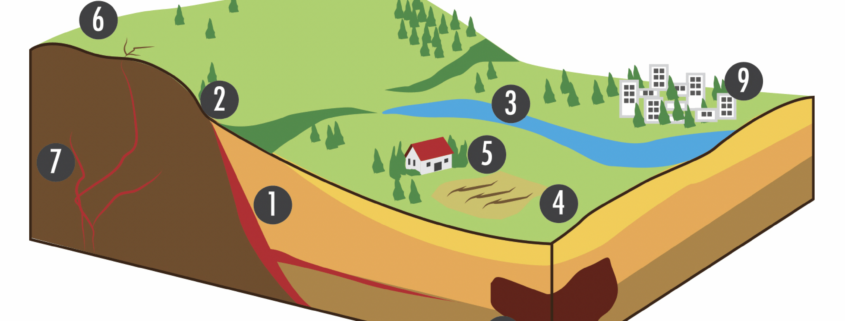Evaluating the Potential for Radon
Evaluating the Potential for Radon
Radon testing is essential in evaluating the potential for radon in a home or building. Radon is a naturally occurring radioactive gas found in soil and rocks. It is released into the air when these materials are disturbed or exposed to the elements. Radon is a serious health hazard and can cause lung cancer when inhaled in high concentrations. Radon testing is the only way to accurately measure the level of radon present in a building and help determine whether or not there is a risk of exposure.

Radon Testing
Several different types of radon testing can be used to evaluate potential radon exposure. The most common type of test is a charcoal canister test, which typically takes three to seven days. During this test, a canister is placed in the basement or other house area and left in place for some time. At the end of the test, the canister is analyzed to measure the amount of radon present.
Another type of radon testing is the long-term test, which typically takes one to two months. This test uses a continuous monitoring device that records the radon levels throughout the test period. This test is essential for identifying the average amount of radon in a building over time.
When evaluating the radon potential, it is essential to understand the risks associated with these tests. All tests come with some degree of uncertainty and should be done by a qualified professional who can advise you on the best test for your situation. Additionally, it is essential to understand that the results of a test may be less than 100% accurate and may need to be verified with a follow-up test.
Radon testing is an integral part of evaluating potential radon exposure. It is essential to understand that there is a certain amount of uncertainty associated with testing and that the results should always be verified with a follow-up test. Additionally, it is essential to understand the risks associated with these tests and to ensure that they are done by a qualified professional. By understanding these issues, you can make an informed decision about radon testing and ensure that your home or building is safe from radon exposure.





Leave a Reply
Want to join the discussion?Feel free to contribute!